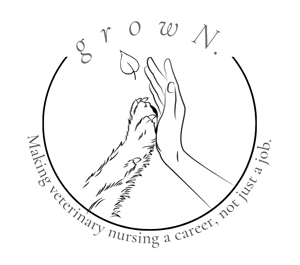With Vienne Fan – BSc, RVN(VNCA), assistant nursing manager and cardiology specialty nurse in VSH
What educational path did you take to become a veterinary nurse, and what additional training or certifications did you pursue in cardiology?
I graduated from bachelor of Zoology in the University of Queensland in 2018. Then, further
studied the Certification IV in Veterinary Nursing in Sydney. Immediately became a
registered vet nurse in Australia. Joined VSH for nearly 5 years, have been worked in
different specialty and now working as a cardiology nurse for 2 years. I’m currently doing a
diploma course of leadership management in University of Hong Kong.
Can you walk us through a typical day or week in your role as a cardiology veterinary
nurse? What are some of your key responsibilities?
The day before consult, we usually run through the history of the new cases for us to easily
brief the cardiologist and take history while talking to the owner. The first thing in the
morning, we will prepare estimate for every patient which depends on the investigation
plan that the cardiologist provided. When patient arrives, as an cardiology nurse, we will ask
the client some simple history such as, the reason they visit a vet initially before they
referred to us, any breathing difficulty history, coughing, history of heart mur mur detected,
etc.
Then, nurses will do simple investigation work up such as measuring blood pressure, taking
chest x-ray and draw blood as planned from cardiologist. After that, nurses will restrain the
patient for cardiologist to perform an echocardiogram which is the most important
investigation test for cardiac patient. Nurses will also be the translator in the consultation
and dispense medication as per instructed by cardiologist. The above steps are basically a
routine for only one consultation case. New or recheck cases are actually running the same
steps. By finishing the day, we review all the messages left from owners and reply them via
phone calls. Most importantly, clean the table and equipment of the echocardiogram
machine.
The most important key responsibility as a cardiology nurse is to understand and identify
the severity of the cardiac response from your patient. Cardiac patients can have fluctuated
respiratory crisis at any time and deteriorate in a very short period of time with zero
symptoms shown. To understand the breathing pattern or appearance is extremely
important when we triage the arrival patient. So that, we can notify cardiologist and
prioritise our case in order to avoid unnecessary delay on treatment.
What are some of the common cardiac conditions you encounter in your patients?
Most commonly seen cardiac disease in dogs will be Myxomatous Mitral valve disease
(MMVD). In cats, most common cardiac disease would be hypertrophic cardiomyopathy
(HCM). More advanced stage of both disease would lead to congestive heart failure (CHF)
which could cause dyspnoea, increasing breathing rate. Animals which present with
congestive heart failure could be life threatening and they may require hospitalisation.
Other congenital heart disease, such as atrial/ ventricular septal defect (VSD), Patent Ductus
Arteriosus (PDA), subaortic stenosis, pulmonic stenosis are also commonly seen in Hong
Kong. Some fatal cardiac neoplasia such as, heart base mass or atrial mass can be also seen
frequently in Hong Kong patients. Different from other neoplasia in the body, biopsy from
the heart is almost impossible for cats and dogs. Therefore, cardiologist will only base on
the feature, position and possibly cytology from pericardial effusion (if any) to determine
the type of cardiac neoplasia. They are often suspected as hemangiosarcoma, lymphoma,
carcinoma or unshaded cell type mesothelioma. Despite they have which type of neoplasia,
it is less likely to change our treatment plan.
How do you collaborate with the veterinary cardiologist and other members of the
veterinary team? What is the importance of a veterinary nurse when it comes to
cardiology nursing?
Decision making and problem solving are the two most important elements as a cardiology
nurse. We need to identify the severity and urgency in order for us to act quick. Well
communication with other specialty service is also essential in veterinary nursing. There
would have multiple squeeze in cases refer from emergency or other specialty service to
cardiology during the day. As a cardiology nurse, it is also important to try our best to assist
cardiologist for accommodating urgent cases which we could have decided how to flexibly
rearrange the daily schedule and routine for a smoother run down in a day.
Caring for animals with heart conditions can be emotionally challenging. How do you cope with the stress and the potential for difficult outcomes?
Handling with cardiac patient can be emotionally challenging. Since they are unpredictable
and fragile, it is definitely stressful if we initiate a mild trigger point that might lead to
accelerating the consequences of heart diseases. Sometimes, patient can have acute cardiac
arrest or breathing with difficulty. It is a torture to see patient with difficulty breathing until
they gasp and pass away. Because that is the very last thing we would like to see. At the
same time, often remind myself and owners that things happen, cardiac disease will only
progress.
I personally left those difficult and sad outcomes behind the hospital door. Once I stepped
out of the working place, I tend to remind myself to forget it. Then, do something I love to
distract myself so that I would not be in the loop of sadness mode. For instance, I will try to
have a good meal after work. Working as any specialty nurse is stressful, if anything can be a
relief from your pressure, take some time to enjoy it.
How do you build rapport and provide support to pet owners who are often worried and anxious?
I always tell client to relax and help your pets to enjoy their life. If clients are anxious,
animals will definitely feel it and turns out being super nervous themselves. However,
honestly speaking as a cardiology nurse, I try to keep them in mind, unfortunately, heart
disease is irreversible, the disease will gradually progress and owners need to get prepared
about this for the worse expectation. At the same time, providing them support which our
team is always here to help their pets. Give them suggestions based on our experience and
try to provide them with the simplest yet helpful skills to convenient them in medicating or
taking care of their pets.
What advice would you give to someone considering a career path in this specialized area of veterinary nursing?
Not only for cardiology, for any other specialized area in veterinary nursing can be
sometimes boring yet thrilling. However, we can always remember that animals are
incredible living creatures. They can always give us surprising outcomes and obviously on
the other hand, they can be very fragile. Therefore, never give up on developing knowledge
with your area of interest and always remember the reason you fall in love with that
particular specialized area at the first place. Most importantly, always remind ourselves we
are here to provide love and giving them a better quality of life in the rest of their journey.
WHAT IS CONGESTIVE HEART FAILURE??
Let me try to put it in a simple explanation. Congestive heart failure is referring to when the
heart does not pump blood as efficient as it should, it does not directly means literally
failing or stop working. Regardless of cats or dogs, when the heart disease is too advanced
which cause the heart less efficient to pump blood, the heart chamber will start enlarging in
size to adapt the insufficiency. By time, the heart could not tolerate further, then the fluid in
the bloodstream will try to ‘flood out’ and cause pulmonary oedema which we could
possibly see on x-ray. That is when we see pulmonary effusion in echocardiogram, so that
we can say the patient is in congestive heart failure. Addition to that, the only and most
efficient treatment to pulmonary oedema is using diuretics, furosemide.
However, furosemide is the treatment to help control and stabilize the consequences of the
heart disease, which is here the fluid accumulating in the chest. Congestive heart failure can
therefore recurrent as the heart disease progress and we are here to try escalating the
treatment as we go through. We always remind the owner there is NO particular medication
to improve the heart disease itself. This is essential to tell the owner that the expectation
and prognosis of the heart disease because heart disease is always unpredictable.


